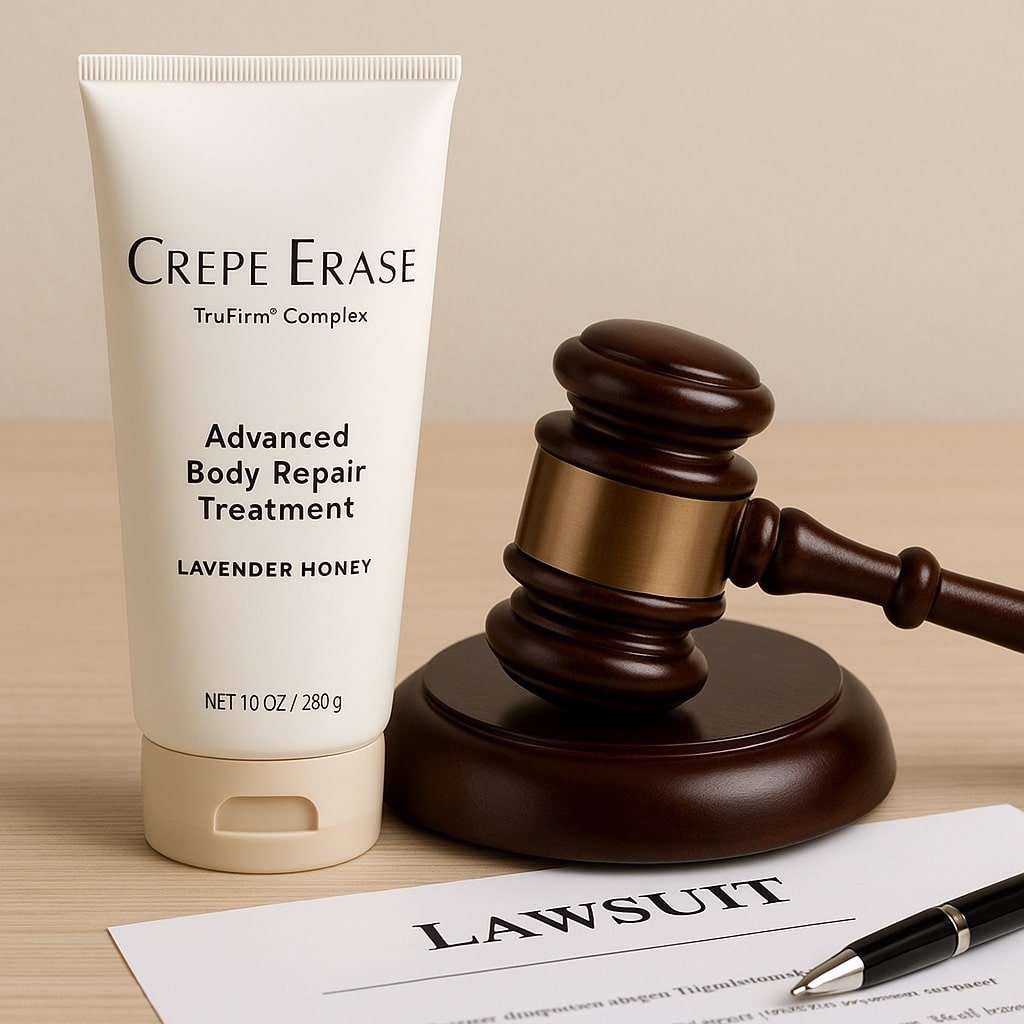In recent years, Crepe Erase has become a widely recognized skincare brand, promoted heavily on TV and online, often with celebrity endorsements. Known for targeting aging and crepey skin, the brand built a large customer base, particularly among women over 40. However, legal issues have emerged, leading to growing interest in the Crepe Erase lawsuit.
If you’re a current or former customer—or simply someone researching the product—this article provides clear, well-researched information about the lawsuit, the reasons behind it, and what consumers should be aware of.
What Is Crepe Erase?
Crepe Erase is a line of skincare products manufactured by Guthy-Renker, a marketing company known for promoting beauty and wellness brands. The product claims to reduce the appearance of crepey skin, typically associated with aging and dryness. It’s often marketed with slogans promising dramatic results in skin texture and elasticity.
Key ingredients include:
- TruFirm® complex (exclusive blend of plant extracts)
- Shea butter
- Cocoa butter
- Hyaluronic acid
While many users have reported positive experiences, not all feedback has been favorable—which eventually led to legal scrutiny.
Understanding The Crepe Erase Lawsuit
The Crepe Erase lawsuit stems from several consumer complaints related to misleading marketing practices, subscription billing issues, and dissatisfaction with product results.
False Or Misleading Advertising
Several customers claim that Crepe Erase’s marketing created unrealistic expectations. While the brand never explicitly called its product a “cure” for aging skin, its language and visual messaging suggested near-miraculous results—especially in infomercials. Critics argue this could mislead vulnerable consumers seeking effective anti-aging solutions.
Automatic Subscription Billing
Perhaps the most common complaint relates to Guthy-Renker’s auto-renewal billing model. Many customers reported unknowingly enrolling in a monthly subscription after purchasing the product online. When they tried to cancel, they faced difficulties or continued charges. This prompted legal action based on violations of consumer protection laws, particularly those governing recurring charges.
Lack Of Transparency
Some legal filings allege that the company did not provide sufficient upfront disclosures about subscription terms, cancellation policies, or refund procedures, which is required under FTC regulations.
Legal Background: Class Action Vs. Individual Claims
The Crepe Erase lawsuit is primarily structured as a class action, allowing multiple affected consumers to pursue legal recourse together. This type of lawsuit strengthens the case by showing a consistent pattern of alleged wrongdoing.
Key allegations include:
- Violations of consumer protection laws
- Deceptive marketing practices
- Unlawful automatic billing
As of now, no final verdict has been reached, and Guthy-Renker has denied wrongdoing in public statements. Settlements in similar cases often involve refunds, policy changes, or compensation for affected consumers.
What Consumers Should Do
If you have purchased Crepe Erase and feel misled or were enrolled in a subscription you didn’t authorize, here are steps you can take:
- Review your billing history for unauthorized charges.
- Contact Guthy-Renker customer service to request cancellation and a refund (if eligible).
- File a complaint with your state’s attorney general or the Better Business Bureau (BBB).
- Check legal databases or law firm websites for information on joining a class action suit.
How To Protect Yourself From Similar Issues
Whether you’re buying skincare or any other product online, here are a few ways to protect yourself:
- Read the fine print on all product and billing terms.
- Avoid impulse purchases from infomercials or sponsored ads.
- Research reviews from real users, not just those featured in ads.
- Use a credit card for added fraud protection.
Final Thoughts
The Crepe Erase lawsuit is part of a broader trend of consumer pushback against aggressive marketing and shady subscription practices. As more customers become aware of their rights, companies are being held accountable for how they sell and promote their products.
For consumers, the key takeaway is to stay informed and cautious, especially when buying from heavily advertised skincare brands. Legal actions like this one help push the industry toward greater transparency and fairness.
Hungry for more? Head over to my website for fresh articles.
7 Key Meanings Of “Gärningen” In Swedish Law And Everyday Language
